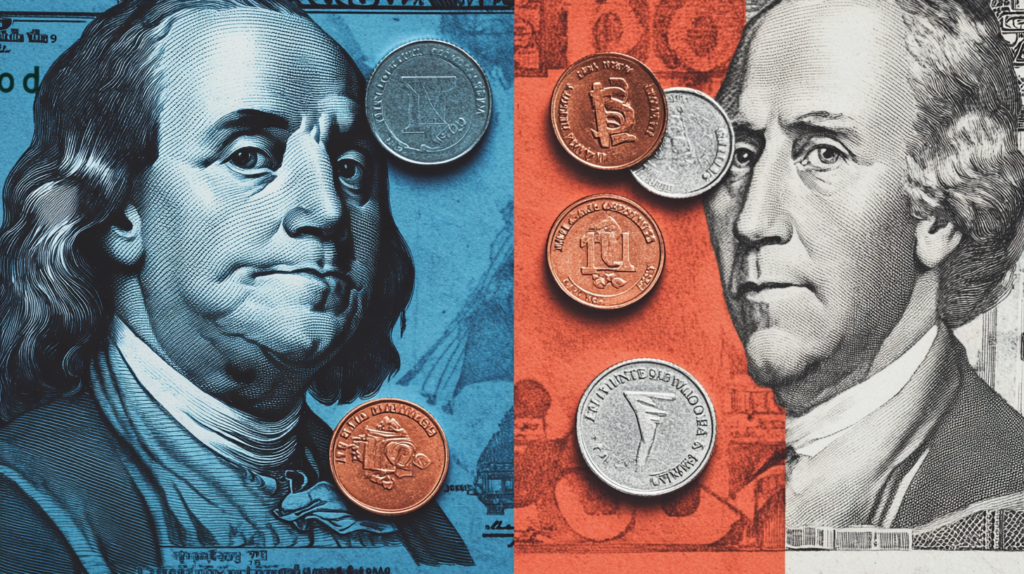Minimum Wage in New Jersey: Complete Breakdown

The minimum wage in New Jersey is a crucial topic for workers, employers, and anyone interested in the state’s labor landscape. With recent increases and ongoing adjustments, New Jersey’s wage standards are designed to balance fair pay with economic sustainability. Whether you’re a business owner, employee, or simply curious about how New Jersey’s wage laws compare to other states, it’s essential to stay updated on the latest developments. This article delves into the current minimum wage rates, wage laws, and regulations, providing a comprehensive guide to help you navigate the wage landscape in the Garden State.
Table of Contents
- Current Minimum Wage in New Jersey
- Minimum Wage for Tipped Workers in NJ
- Key NJ Wage Laws and Employee Rights
- Cost of Living and Its Impact on Wages in NJ
- Recent Updates: New Jersey Minimum Wage Increase
- New Jersey Minimum Wage vs. Federal Minimum Wage
- State Minimum Wage Comparison: Where Does NJ Stand?
- Ensuring Compliance: NJ Wage Requirements for Employers
- About Deskcove
- FAQ
Current Minimum Wage in New Jersey
The current minimum wage in New Jersey is a key consideration for workers and businesses alike. Understanding the latest rate helps ensure compliance and fair compensation.
Understanding the 2024 Minimum Wage Rate
As of 2024, the minimum wage in New Jersey stands at $15 per hour for most workers. This increase has been part of a phased approach that began in 2019, aiming to gradually raise wages to ensure a living wage for residents. The adjustment reflects the state’s commitment to improving income levels and reducing wage disparities.
Impact on Small Businesses and Employers
The steady increase in the minimum wage in NJ has had significant implications for small businesses. While the wage boost supports workers, it can also mean higher operating costs for business owners. Many businesses have adapted by revisiting pricing strategies, adjusting work hours, or implementing technology solutions like Deskcove’s productivity tools to optimize workflow and maintain profitability.
Wage Rate for Seasonal and Agricultural Workers
In addition to the standard minimum wage rate, New Jersey has specific provisions for seasonal and agricultural workers. As of 2024, these workers have a slightly lower minimum wage, acknowledging the unique nature of their employment. Employers must be aware of these differences to remain compliant with NJ wage laws and avoid potential penalties.
Minimum Wage for Tipped Workers in NJ
Tipped workers in New Jersey face different wage structures than non-tipped employees, which can affect their overall earnings.
How Tipped Minimum Wage Works
In New Jersey, tipped workers, such as waitstaff and bartenders, are subject to a different minimum wage structure. While the state minimum wage is $15 per hour, the tipped wage rate is $5.13 per hour as long as the total earnings with tips reach the standard minimum wage. Employers are required to make up the difference if tips do not meet the minimum wage threshold.
Challenges Faced by Tipped Workers
Tipped workers in New Jersey often face uncertainty regarding their earnings, as their income is heavily dependent on customer generosity. Although the minimum wage law aims to ensure fair compensation, discrepancies in tips can create financial instability. It is crucial for employers to accurately track tips and ensure compliance with wage requirements.
Employer Responsibilities for Tipped Employees
Employers in New Jersey must stay informed about their responsibilities when it comes to tipped workers. This includes keeping detailed records of tips received and ensuring that tipped employees are earning at least the minimum wage in NJ. Tools like Deskcove can help businesses streamline payroll management and maintain accurate wage records.
Key NJ Wage Laws and Employee Rights
New Jersey’s wage laws encompass a variety of regulations designed to protect workers and ensure fair treatment in the workplace.
Overview of NJ Wage and Hour Laws
New Jersey has a comprehensive set of wage and hour laws designed to protect workers’ rights. These laws cover various aspects of employment, including overtime, meal breaks, and wage payment regulations. Understanding these laws is vital for both employers and employees to avoid wage disputes in NJ.
Overtime Pay and Exemptions
In New Jersey, non-exempt employees are entitled to overtime pay at 1.5 times their regular hourly rate for any hours worked over 40 in a week. Some employees may be exempt based on their job duties and salary, but most hourly workers qualify for this protection. Businesses must ensure they comply with these regulations to avoid legal complications.
Employee Rights: What You Need to Know
Employees in New Jersey have the right to receive a fair wage for their work, along with protections against unfair labor practices. The state labor department provides resources to help employees understand their rights and report any violations. Knowledge of these rights empowers workers to seek justice if they encounter wage discrepancies or unfair practices.
Cost of Living and Its Impact on Wages in NJ
The cost of living in New Jersey is an important factor in determining the adequacy of the minimum wage for workers in the state.
The Relationship Between Wages and Living Costs
The cost of living in New Jersey is among the highest in the United States, making the minimum wage a critical factor in maintaining a reasonable standard of living. Housing, healthcare, and transportation costs continue to rise, making wage increases essential for many workers to afford basic necessities.
How NJ Wage Rates Compare to Neighboring States
New Jersey’s minimum wage is higher than that of neighboring states like Pennsylvania, where the minimum wage remains at $7.25 per hour. This disparity can influence migration patterns, with workers moving to states offering better wage opportunities. For employers, it means competing for talent with states that offer similar or higher wages.
Living Wage vs. Minimum Wage: What’s the Difference?
A living wage in New Jersey typically surpasses the state’s minimum wage, reflecting the actual costs required to support a household. While the minimum wage aims to set a baseline, the living wage considers factors like family size and regional expenses, offering a more accurate measure of economic stability for workers.
Recent Updates: New Jersey Minimum Wage Increase
New Jersey’s minimum wage has undergone several changes in recent years, reflecting efforts to address inflation and economic disparities.
2024 Wage Adjustment Highlights
The increase to $15 per hour in 2024 is the latest in New Jersey’s efforts to improve earnings for its workforce. This adjustment follows a series of annual increases, each designed to gradually bring wages up to the target level without causing abrupt economic shifts. Understanding these updates helps businesses plan for budgetary adjustments.
Projected Future Increases and Adjustments
New Jersey’s wage adjustments are not expected to stop at $15 per hour. The state regularly reviews economic conditions and inflation rates to determine whether additional increases are necessary. Staying updated on these projections can help both employers and employees prepare for future changes in the wage structure.
How the 2024 Increase Affects Different Sectors
The 2024 minimum wage increase impacts various sectors differently. Industries like retail, hospitality, and food service, where lower wage jobs are common, may feel the effects more intensely. Businesses can benefit from using Deskcove’s tools to analyze labor costs and optimize staffing levels in response to these changes.
New Jersey Minimum Wage vs. Federal Minimum Wage
Understanding the differences between state and federal minimum wage rates is essential for businesses and workers operating in New Jersey.
Understanding the Differences
While the federal minimum wage remains at $7.25 per hour, New Jersey’s state minimum wage is significantly higher at $15 per hour. This difference underscores New Jersey’s commitment to providing fairer wages in comparison to the federal baseline. For workers in the state, this means higher earning potential and better financial stability.
Why New Jersey’s Rate Is Higher
The decision to maintain a higher minimum wage in NJ reflects the state’s high cost of living and the need to provide residents with sustainable income levels. This approach is designed to reduce poverty levels and enhance the overall quality of life for New Jersey residents.
Implications for Employers and Workers
Employers must navigate the complexities of adhering to state laws that surpass federal standards. For businesses operating across state lines, this means adjusting payroll to comply with New Jersey’s higher rate. Deskcove’s software solutions can simplify payroll management, helping businesses remain compliant with varying wage requirements.
State Minimum Wage Comparison: Where Does NJ Stand?
Comparing New Jersey’s minimum wage to other states provides insight into how it measures up on a national scale.
Comparing NJ to Other High-Wage States
New Jersey’s minimum wage ranks among the highest in the nation, alongside states like California and Massachusetts. These states share similar economic dynamics, including higher costs of living and strong labor unions advocating for better wages. This comparison is critical for understanding the broader context of wage policies in the United States.
The Role of Regional Economic Conditions
Regional economic conditions play a significant role in determining state minimum wage rates. New Jersey’s proximity to New York City, a major economic hub, contributes to its higher wage standards. Businesses in NJ must adapt to these conditions to attract and retain talent in a competitive labor market.
Why Some States Have Lower Minimum Wages
States with lower living costs, like Mississippi and Alabama, maintain minimum wages closer to the federal rate. These states argue that lower wages are more appropriate given their economic conditions. However, this can create challenges for workers who struggle to meet basic living expenses.
Ensuring Compliance: NJ Wage Requirements for Employers
Compliance with wage regulations is crucial for maintaining a fair and legally sound workplace in New Jersey.
The Importance of Compliance
Maintaining compliance with New Jersey’s wage laws is crucial for employers to avoid penalties and legal issues. Regular audits of payroll processes can help ensure that wage payments meet the state’s requirements. Deskcove’s time-tracking features can assist businesses in accurately recording work hours and wages.
Penalties for Non-Compliance
Employers in NJ face strict penalties if found violating minimum wage laws. This can include fines, back payments, and other legal consequences. Staying informed about the latest wage guidelines and using tools like Deskcove’s compliance checks can prevent costly errors.
Best Practices for Employers
Employers can benefit from implementing best practices such as regular training on wage laws, clear communication with employees, and efficient payroll management. Deskcove offers solutions that streamline these processes, making it easier to stay compliant with New Jersey wage regulations.
About Deskcove
Deskcove is a leading provider of productivity and workforce management solutions, offering tools that help businesses stay compliant with labor laws like those in New Jersey.
From time-tracking to payroll integration, Deskcove supports companies in managing their workforce efficiently while ensuring adherence to wage standards. Whether you’re a small business or a larger enterprise, Deskcove has the solutions to meet your needs.
FAQ
What is the current minimum wage in New Jersey?
The current minimum wage in New Jersey as of 2024 is $15 per hour for most workers, following a series of increases over recent years.
Are tipped workers entitled to the full minimum wage in NJ?
Tipped workers in New Jersey receive a base wage of $5.13 per hour, with employers required to ensure their total earnings meet or exceed the state’s minimum wage when tips are included.
How often does the minimum wage in New Jersey increase?
New Jersey’s minimum wage increases are reviewed annually, with adjustments based on inflation and other economic factors to ensure wages keep pace with the cost of living.
How does New Jersey’s minimum wage compare to the federal minimum wage?
New Jersey’s minimum wage of $15 per hour is significantly higher than the federal minimum wage of $7.25 per hour, offering better income stability for its workers.

